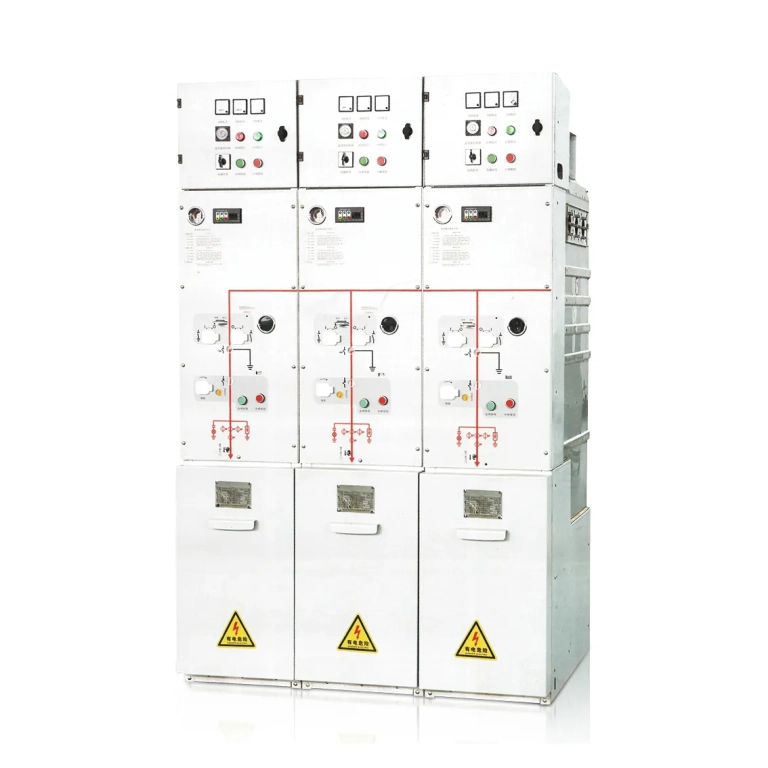Future-Proofing Global Infrastructure: Technology, Power, and Intelligent Electrification

The 21st century has ushered in a new industrial revolution—one shaped by automation, digital electrification, intelligent monitoring, and the urgency of sustainable energy. Today’s infrastructure is being reimagined not just as physical systems but as integrated cyber-physical ecosystems. From smart grids and industrial automation to EV charging networks and renewable power plants, the next decade of innovation will determine whether countries can meet rising energy demands while reducing carbon emissions.
Intelligent electrification—where digital sensors, automation software, and data analytics work together—is at the heart of this global transition.
1. The Forces Driving Global Electrification
Several pressures define the current landscape:
-
Rapid urbanization increasing infrastructure load
-
Mass electrification of transportation
-
Renewable energy integration challenges
-
Distributed generation expansion
-
Aging infrastructure replacement
By 2035, global electricity demand is projected to double in some regions due to:
-
5G expansion
-
AI data centers
-
Battery manufacturing
-
Hydrogen production
-
Residential heat electrification
The power grid is now as important as the internet.
2. Industrial Automation’s Merging With Power Distribution
Historically, power distribution equipment was mostly mechanical. Today:
-
Switchgear contains embedded processors
-
Transformers contain temperature sensors
-
Circuit breakers communicate digitally
-
AI performs predictive maintenance
A low-voltage switchgear may now send:
-
Real-time load profiles
-
Harmonic distortion alerts
-
Trip event logs
-
Predictive failure alarms
Industries adopting this approach reduce their downtime by nearly 30%.
3. IoT Embedded in Electrical Equipment
IoT integration transforms passive hardware into proactive guardians of safety.
Typical IoT metrics include:
-
Busbar temperature
-
Vibration patterns
-
Surge event detection
-
Arc flash probability
-
Ground leakage analytics
These metrics enable:
-
Risk scoring
-
Preventive interventions
-
Maintenance scheduling
In factories, IoT adoption has reduced arc-flash energy events by 45–70%.
4. Grid Infrastructure Challenges
Many national grids were built 40–60 years ago. Today, they must:
-
Support EV charging
-
Stabilize intermittent solar/wind
-
Support prosumer energy feedback
-
Interconnect microgrids
-
Host battery-based load shifting
Without modern switchgear, smart relays, and digital monitoring, the grid will fail to support electrification growth.
This is why technologies available at https://chinadegatech.com/ are becoming globally relevant for utilities, industrial campuses, data centers, and renewable hubs.
5. The Rise of Microgrids
Microgrids combine:
-
Local solar
-
Local storage
-
Local load control
They operate autonomously during outages.
Key benefits:
-
Local resilience
-
Outage protection
-
Frequency stability
-
Demand smoothing
Hospitals, airports, and military bases increasingly depend on them.
6. Cybersecurity: The Invisible Threat
As electrical equipment gains connectivity, new vulnerabilities emerge:
-
Relay firmware exploits
-
Switchgear communication hijacking
-
SCADA ransomware injections
Top countermeasures include:
-
Zero-trust network segmentation
-
Firmware signing
-
Continuous traffic monitoring
-
AI anomaly detection
Cyber-electrical warfare is now a national infrastructure concern.
7. Workforce Skill Shifts
Traditional electrical technicians trained on:
-
Relays
-
Transformers
-
Circuit diagrams
Modern requirements demand:
-
Ethernet networking
-
Cloud analytics
-
Cybersecurity awareness
-
PLC/HMI programming
Talent shortages are now one of the largest obstacles.
8. Sustainability and SF6 Alternatives
SF6 is 24,000x more potent than CO₂.
Regulatory pressure is accelerating:
-
Vacuum insulation adoption
-
Air-insulated switchgear upgrades
-
Take-back recycling programs
Decarbonized switchgear is expected to dominate utilities by 2032.
9. Data Centers: Electrification’s Heavyweights
AI workloads have increased data center energy consumption dramatically:
-
1 hyperscale facility = electricity of 80,000 homes
-
GPU clusters demand precise power stability
Modern data centers require:
-
High-breaking-capacity switchgear
-
Intelligent UPS
-
Arc-flash-safe busways
-
Rapid redundancy switching
Downtime cost can exceed $7,900 per second.
10. EV Infrastructure Expansion
EV fleets are pushing distribution systems beyond historical design limits.
Challenges include:
-
Peak aggregated charging demand
-
Harmonic distortion from fast chargers
-
Overheating in aging substations
Smart load management is critical.
11. Renewable Power Integration
Wind and solar produce intermittent flows:
-
No wind = no power
-
Cloud cover = immediate dips
Switchgear must manage:
-
Reverse feeding
-
Rapid voltage fluctuations
-
Frequency stabilization
Hybrid systems with battery energy storage offer consistency.
12. Digital Twins in Electrical Ecosystems
A digital twin simulates:
-
Thermal distribution
-
Failure probability
-
Load balancing
-
Fault propagation patterns
Engineers can test scenarios safely:
-
Short circuit
-
Faulted feeders
-
Switch mis-operation
This reduces human error.
13. Intelligent Breaker Coordination
With networked breakers:
-
Faults isolate faster
-
User zones remain powered
-
Cascading blackouts are prevented
AI predictive clearing is emerging.
14. Smart Factories and Electrification
Industry 4.0 relies on:
-
Low-voltage motor control
-
Harmonics filtering
-
High-accuracy metering
Factories report:
-
18–25% improved efficiency
-
15–30% reduced downtime
15. Transportation Electrification
Rail and maritime sectors deploy:
-
Shore power absorption
-
Grid-connected traction systems
-
Electrified logistics terminals
These require rugged switchgear.
16. Hospitals: Power Reliability is Life
Critical loads include:
-
Surgical theaters
-
ICU equipment
-
Pharmaceutical refrigeration
Hospitals depend on:
-
Static transfer switches
-
Redundant busbars
-
Fault-tolerant relays
17. Mining Electrification
Mining sites adopt:
-
High-current switchgear
-
Harmonic suppression
-
Electrified drilling vehicles
Helps reduce CO₂ emissions drastically.
18. Intelligent Maintenance
Predictive analytics detect:
-
Insulation degradation
-
Thermal hotspots
-
Contact resistance
Avoiding unplanned shutdowns saves millions annually.
19. Circular Economy in Electrical Equipment
Retirement recycling includes:
-
Copper separation
-
Busbar alloy reuse
-
Vacuum interrupter recovery
Some regions now mandate extended producer responsibility.
20. Conclusion
Global infrastructure must evolve:
-
Cleaner
-
Smarter
-
Faster
-
More secure
Data-driven electrification is the key to resilient development. Organizations seeking high-performance switchgear, breakers, and electrical solutions should consider innovative suppliers such as:
Future competitiveness will be measured not just by energy capacity—but by intelligence, sustainability, reliability, and digital adaptability.
- Art
- Causes
- Crafts
- Dance
- Drinks
- Film
- Fitness
- Food
- الألعاب
- Gardening
- Health
- الرئيسية
- Literature
- Music
- Networking
- أخرى
- Party
- Religion
- Shopping
- Sports
- Theater
- Wellness



